A vibrant capital, Berlin both surprises and captivates. Between raw energy and quiet charm, it reveals itself to those who take the time to explore. To truly catch its nuances, nothing beats the insight of our local guides. They open the doors to its hidden corners and its turbulent history.
On the cultural side, the city is impressive. There are no fewer than 170 museums, of every size and style. Urban art, meanwhile, makes a bold statement at the East Side Gallery, a living mural on the remains of the wall, or at the Urban Nation Museum, entirely dedicated to street art.
And to catch your breath between discoveries, head to Tempelhofer Park—a former airport turned into an extraordinary green space. Berlin also stays easy on the budget, and once night falls, its bars, clubs, and alternative venues take over to keep the adventure going.
Top 5 Guided Tours
Places to Visit
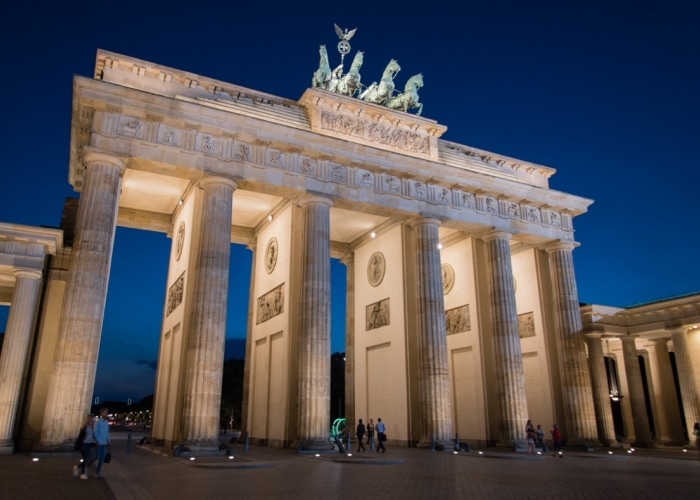
You can’t miss the Brandenburg Gate. It stands at the end of Unter den Linden Avenue, like a stone sentinel, witness to a dense and sometimes turbulent history. Built in 1791 in a style inspired by the Acropolis, it reminds us that Berlin once dreamed of being grand, beautiful, and classical.
At the very top, the quadriga. This chariot drawn by four horses has traveled far—Napoleon took it to Paris after his victory, before it returned triumphantly to Berlin after Waterloo. A symbolic, almost theatrical revenge. During the war, everything was blown apart. But it was rebuilt, patiently, using the original mold.
Today, the gate is more than a relic of the past. It has become a true symbol. Of the city, of course, but above all of reunification—of that moment when two Germanys became one, under the gaze of the world.
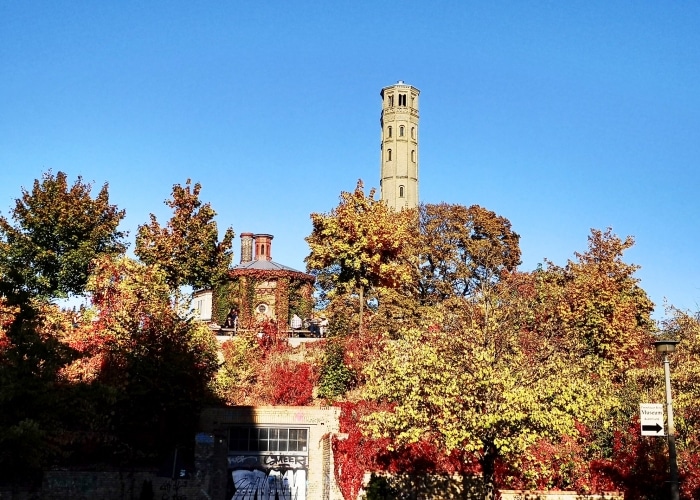
In the north of Berlin, a neighborhood that doesn’t try to stand out. Prenzlauer Berg. Bright, quiet, almost too calm at times. For years it was overlooked. Then, after reunification, it began to breathe differently.
Around Kollwitzplatz, the streets carry a gentle feel. Flower-lined sidewalks. Buildings with a worn patina, never excessive. You walk with no real destination, just to be there.
No towers, no straight lines. Instead, cafés spilling onto the sidewalks, small shops with slightly crooked windows, and local creators—discreet, but present. The air feels slower here. Or maybe it’s just the noise fading away.
Want to dig a little deeper? Walk to the Berlin Wall Memorial. A guide can take you along. It isn’t just a stroll, it’s a thread you follow. For 1.5 km, you trace what once divided. Two worlds, one city, a scar. Nothing spectacular. Yet everything is there, quietly, beneath the surface.
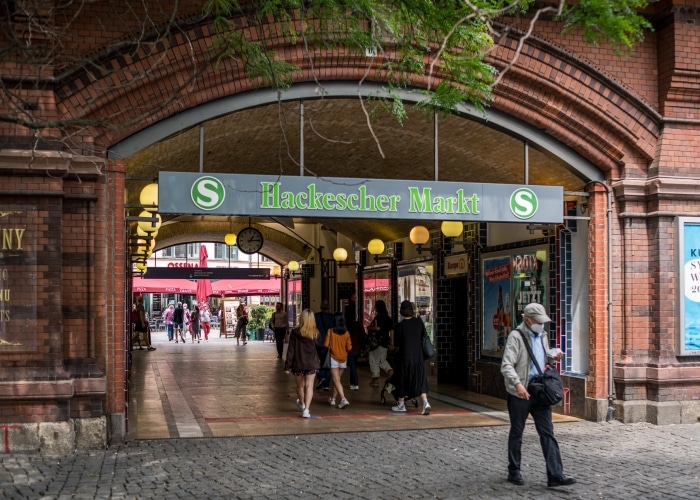
At Hackescher Markt, you’ll find one of the city’s most popular and pleasant shopping spots. This charming little square is surrounded by trendy clothing shops and local designer boutiques.
On Saturdays, an open-air market fills the square with stalls of fresh produce and crafts. Terraces spill over with people, conversations mix with the rumble of the passing tram, and despite the crowds, the atmosphere stays warm and welcoming.
This area is just a short walk from the Museum Island and Monbijou Park. It’s also here that you’ll discover the small inner courtyards known as the Hackesche Höfe.
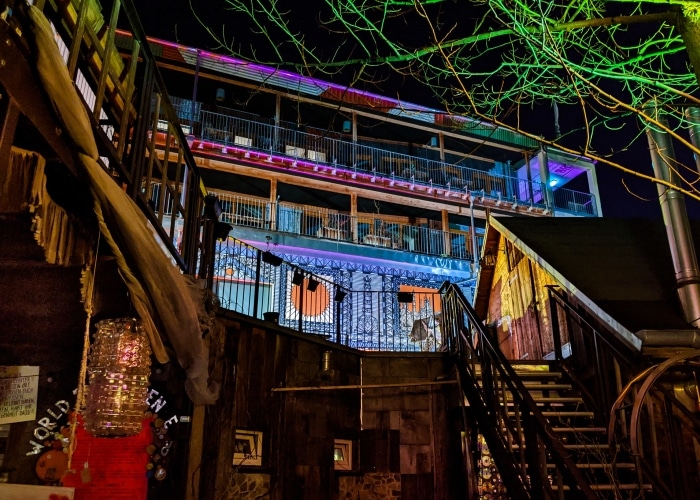
The trendy spot Kater Blau has taken the place of the former Kater Holzig. A true hub of Berlin’s alternative scene, it brings together small open-air markets, biergartens (traditional German beer gardens), and clubs where you can dance to sets from top DJs.
Set on the banks of the Spree, the venue also offers quieter corners where you can sit and talk by the water. Colorful lights reflect on the river, giving the place a vibe that’s both festive and almost dreamlike as night falls.
With its offbeat décor and diverse crowd, everything here is designed to make it THE place to party—sometimes from Friday night straight through to Monday evening.
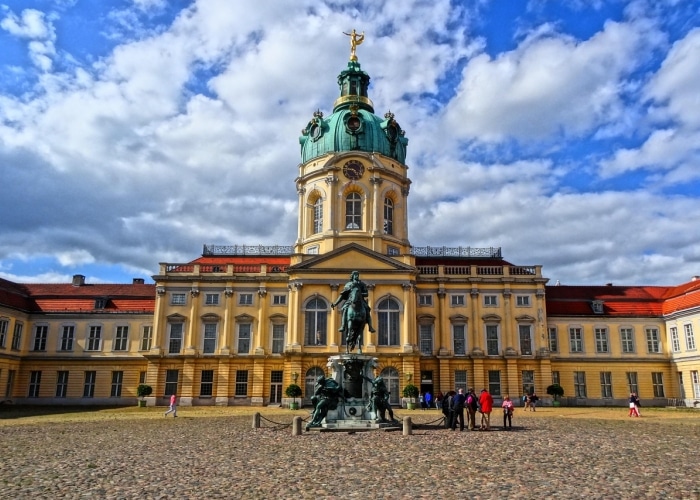
The Schloss Charlottenburg. Vast. Serene. Built at the request of Queen Sophie Charlotte, wife of Frederick I, at the end of the 17th century. A summer residence, yes, but conceived as a world apart. Much of the palace was destroyed during the war, then rebuilt. Patience and memory linger in every wall.
The moment you cross the threshold, everything turns to detail. Rococo everywhere, yet never heavy. Gold accents, textures, objects from far away. A few Chinese pieces, set as if they had never left. The old teahouse? Transformed. It now displays porcelain from the Royal Manufacture. The former theater has found a different voice—today it speaks of ancient times through a museum of prehistory and protohistory. Nothing is frozen here. Every room whispers something.